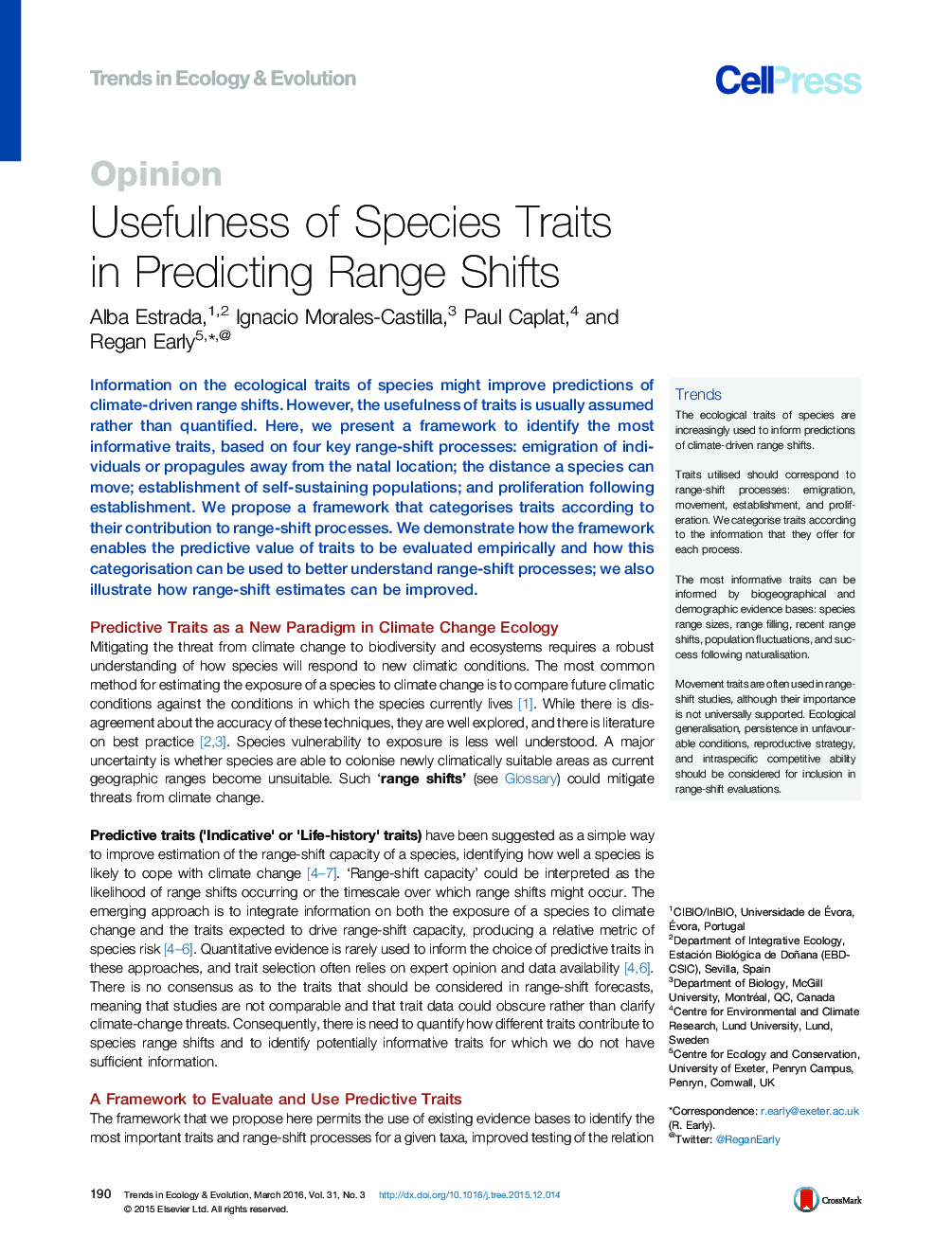| Article ID | Journal | Published Year | Pages | File Type |
|---|---|---|---|---|
| 142303 | Trends in Ecology & Evolution | 2016 | 14 Pages |
Information on the ecological traits of species might improve predictions of climate-driven range shifts. However, the usefulness of traits is usually assumed rather than quantified. Here, we present a framework to identify the most informative traits, based on four key range-shift processes: emigration of individuals or propagules away from the natal location; the distance a species can move; establishment of self-sustaining populations; and proliferation following establishment. We propose a framework that categorises traits according to their contribution to range-shift processes. We demonstrate how the framework enables the predictive value of traits to be evaluated empirically and how this categorisation can be used to better understand range-shift processes; we also illustrate how range-shift estimates can be improved.
TrendsThe ecological traits of species are increasingly used to inform predictions of climate-driven range shifts.Traits utilised should correspond to range-shift processes: emigration, movement, establishment, and proliferation. We categorise traits according to the information that they offer for each process.The most informative traits can be informed by biogeographical and demographic evidence bases: species range sizes, range filling, recent range shifts, population fluctuations, and success following naturalisation.Movement traits are often used in range-shift studies, although their importance is not universally supported. Ecological generalisation, persistence in unfavourable conditions, reproductive strategy, and intraspecific competitive ability should be considered for inclusion in range-shift evaluations.
